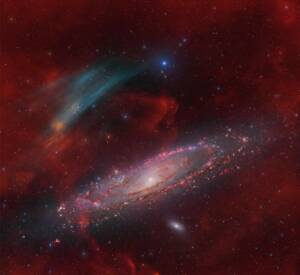
Discovery of the M31 [OIII] emission arc
Recently, a major discovery by an international team of amateur astronomers and scientists has become a huge online hit, and this new discovery is just located in one of the

Hello Daniel, thanks for accepting our interview invitation. Congratulations on winning the ASIWEEK competition in week #02/2024!
Thank you so much for choosing me as the winner of the week! My name is Daniel Renner, and I am 32 years old living in Skövde, Sweden.
Since I live in the north we cannot do any astrophotography between April and late August so 5 months each year the gear is collecting dust…
So I want to spend every possible minute doing astrophotography when the skies are clear.

My true interest in astronomy began one clear night in 2019. While I was in my old apartment, I saw Orion’s belt up in the sky, so I grabbed my old binoculars and aimed them at Orion and noticed a hazy spot among the stars. A quick Google search revealed tons of astrophotos of M42 and many other objects, and from that moment, I was hooked.
A couple of weeks later I bought my first telescope and this was the start of my journey.


A couple of months later I bought a Heq5 Pro, Skywatcher Evostar 72ed, Zwo 120mm guide cam, and an Orion 50mm guide scope, and I could finally use my old DSLR that I hadn’t used for over 10 years.
I love doing astrophotography because it is so interesting and cool to see what is out there in the night sky.
It is also a unique hobby because you are observing events that occurred a long time ago.
For example, the Orion Nebula is located approximately 1,300 light-years away from us, which means that when we photograph it, we are capturing light that left the nebula 1,300 years ago.

This was my first image since April and also the premier of my camera, ASI2600MM Pro together with a complete set of Antlia filters.
I also drove for the first time to a remote location of bortle 3-4 zone so I could collect good broadband data.


My equipment now is:



So far, I have only imaged from a remote location once, and that was in a bortle 3-4 zone. It was also the night I captured a part of my winning picture. On all other nights, I have imaged from my backyard, which is in a bortle 5-6 zone.


First, I filter out all the bad frames with clouds, guiding errors, etc. After that I stack all frames in Pixinsight using WeightedBatchPreprocessing.
Then it all depends on what kind of image I’m editing. Background extraction, color correction, BlurXterminator, stretching the images, and so on.
It’s hard to give a full workflow because every image needs its own type of processing.
Many! Astrophotography has a very steep learning curve and I almost have some kind of problem every time I capture images. But this hobby is so rewarding and the problems are a part of the hobby.
Fortunately, there are forums, YouTube, and Facebook groups and there are answers for almost anything if you have any questions or problems.
I work shift, so when I’m not at work and the skies are clear, my gear is out collecting light.
Hmm, I guess one story is when “SAAF” (Swedish Amateur Astronomical Association) was celebrating 40 years in 2022. They had an astrophoto competition. The ten best pictures would be displayed in one of the biggest astronomy shops in Sweden, in libraries, and at star parties during 2023. I got 3rd place in that competition with the comet C/2022 E3 ZTF. I also wrote an interview for “Telescopium” (Swedish Astronomy Magazine).

I also won Image of the week last year with my image of VDB 152.

Have patience and don’t give up when things are not going as you thought they would. We ALL have those times when things are not working out and you just want to quit. Hang on! And learn from your mistakes.
Equipment-wise, my tip is not to buy the cheapest gear you can get because that will most likely kill your interest in becoming an astrophotographer. Ask in different Facebook groups, search on Google, watch YouTube, and talk to a professional at an astronomy shop before you begin to spend your hard-earned cash on this hobby.
The most important equipment to spend most of your budget on is the mount.
My first ZWO product was the ASI120MM guide camera, but the “real deal” was when I upgraded my old DSLR to the ASI1600MM Pro.
My favorite ZWO product is the 2600MM Pro, and I have only used it 4 nights so far.


You can see more of my images on my Astrobin: https://www.astrobin.com/users/Calzune/

Recently, a major discovery by an international team of amateur astronomers and scientists has become a huge online hit, and this new discovery is just located in one of the
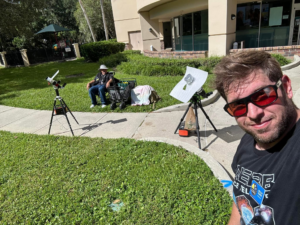
That 11-year-old boy staring at Horsehead Nebula photo would never have imagined… Decades later, he’d be capturing amazing deep-sky images from his Florida backyard! “ It was amazing to see
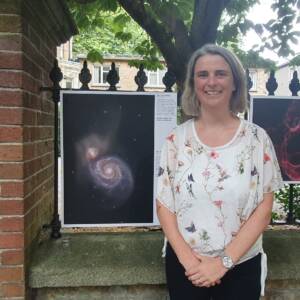
Hello,Sara Harvey,thanks for accepting our interview invitation. Congratulations on winning the ASIWEEK competition in week! Q1: At first, congratulation that your nice image won #ASIWEEK. Can you introduce yourself to
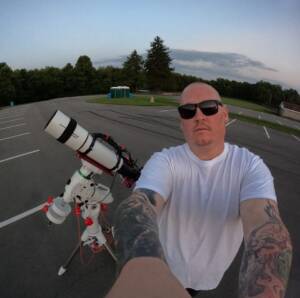
Astrophotography is more than just capturing images of the night sky—it’s a journey of discovery, patience, and creativity. For this passionate astrophotographer, what started as a chance encounter with a
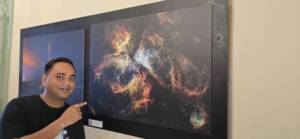
Taranjot Singh, an Indian origin Australian astrophotographer who is making waves on the international stage. Taranjot has been recognized as one of the Top 5 finalists in the prestigious Siena
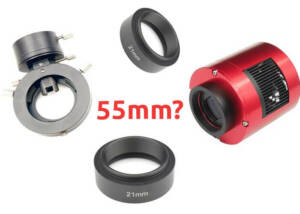
The back focal length is advised by telescope manufacturers. Since most telescopes have a 55mm back focal length, we are here to provide detailed instructions for all ASI cooled cameras.Please